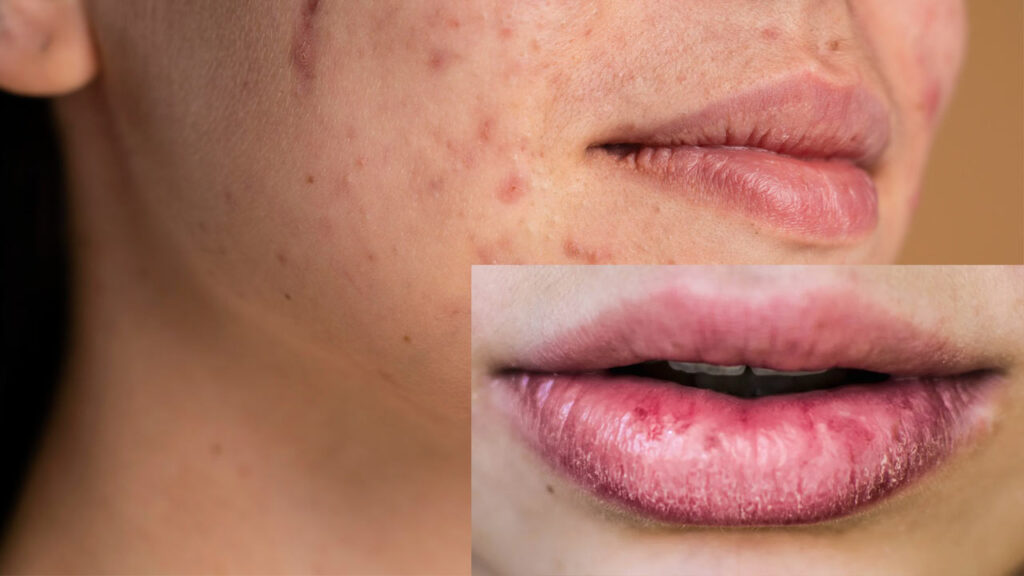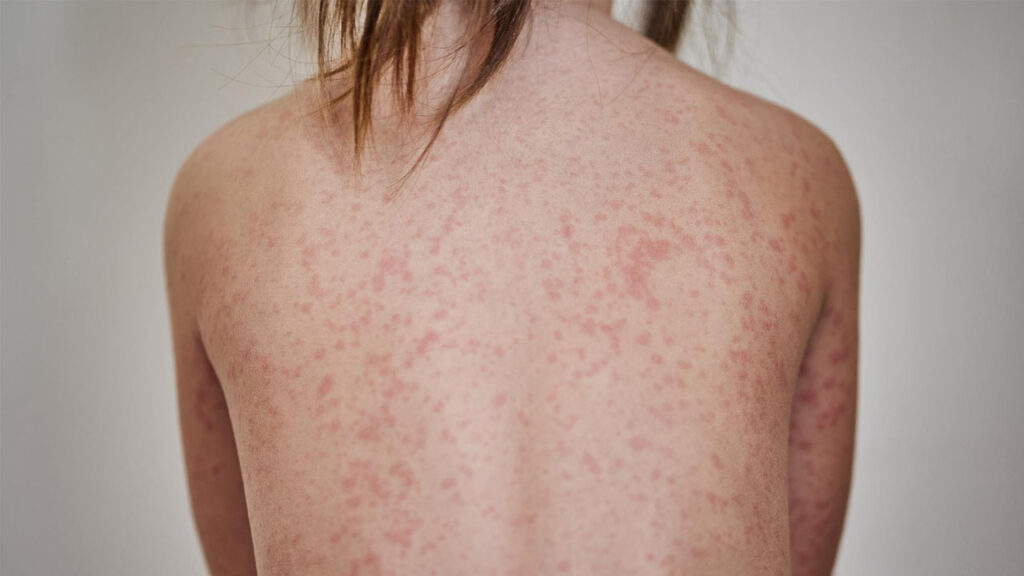Eczema is a common skin condition that causes dry, itchy, inflamed, and cracked skin. It can affect any part of the body, including the mouth. People with eczema may experience oral problems such as dry mouth, tooth decay, gum disease, oral infections, and pain. Therefore, it is important to take good care of your dental health if you have eczema. In this article, we will explain the importance of dental care for people with eczema. You will learn:
- How eczema affects your oral health
- How to prevent or treat oral complications of eczema
- How to choose the best dental products for people with eczema?
- How to maintain good oral hygiene habits if you have eczema
By reading this article, you will gain valuable and right information about dental care for people with eczema that will help you improve your oral health and quality of life.

How Eczema Affects Your Oral Health
Eczema can affect your oral health in several ways:
Eczema can cause dry mouth.
Dry mouth is a condition where your mouth does not produce enough saliva. Saliva is essential for keeping your mouth moist, washing away food particles and bacteria, neutralizing acids, and preventing tooth decay and gum disease. People with eczema may have dry mouth due to inflammation of the salivary glands, dehydration, or medications that reduce saliva production.
Eczema can cause tooth decay.
Tooth decay is a process where bacteria in your mouth break down sugars from food and drinks and produce acids that damage your tooth enamel. People with eczema may have tooth decay due to dry mouth, which reduces saliva’s protective role; or due to acidic foods or drinks that worsen skin inflammation and erode tooth enamel.
Eczema can cause gum disease.
Gum disease is an infection of the tissues that support your teeth. It can cause bleeding, swelling, redness, pain, bad breath, and tooth loss. People with eczema may have gum disease due to dry mouth, which increases plaque buildup; or due to poor oral hygiene habits that result from skin discomfort or pain.
Eczema can cause oral infections.
Oral infections are caused by bacteria, fungi, or viruses that invade your mouth. They can cause sores, ulcers, blisters, white patches, red spots, or fever. People with eczema may have oral infections due to dry mouth, which lowers your immune system’s ability to fight germs; or due to scratching or biting your lips or cheeks that create openings for germs to enter.
How to Prevent or Treat Oral Complications of Eczema
Oral complications of eczema can be prevented or treated by following these tips:
- Drink plenty of water to keep your mouth hydrated and stimulate saliva production.
- Chew sugar-free gum or suck on sugar-free candies to increase saliva flow and moisten your mouth.
- Avoid acidic, spicy, salty, or sugary foods and drinks that can irritate your skin and teeth.
- Use a humidifier or a vaporizer to add moisture to the air and prevent your skin and mouth from drying out.
- Apply a moisturizer or a lip balm to your lips and skin around your mouth to prevent cracking and chapping.
- Brush your teeth twice a day with a soft-bristled toothbrush and a fluoride toothpaste to remove plaque and bacteria and strengthen your tooth enamel.
- Floss your teeth once a day to clean between your teeth and prevent gum disease.
- Rinse your mouth with water or an alcohol-free mouthwash after eating or drinking to wash away food particles and acids.
- Visit your dentist regularly for checkups and cleanings to detect and treat any oral problems early.
- Visit your doctor or dermatologist for treatment of your eczema and any medications that may affect your oral health.
- Seek emergency care if you have severe oral pain, swelling, bleeding, or fever.
How to Choose the Best Dental Products for People with Eczema?
Choosing the best dental products for people with eczema can be challenging, as some products may contain ingredients that can worsen your skin condition or cause allergic reactions. Here are some tips on how to choose the best dental products for people with eczema:
- Look for products that are hypoallergenic, fragrance-free, dye-free, and alcohol-free. These products are less likely to irritate your skin or mouth.
- Look for products that contain natural or organic ingredients, such as aloe vera, chamomile, or coconut oil. These ingredients can help soothe and moisturize your skin and mouth.
- Look for products that contain fluoride, xylitol, or chlorhexidine. These ingredients can help prevent tooth decay, gum disease, and oral infections.
- Avoid products that contain sodium lauryl sulfate (SLS), parabens, propylene glycol, or triclosan. These ingredients can dry out your skin and mouth, cause inflammation, or disrupt your hormonal balance.
- Test the products on a small area of your skin or mouth before using them regularly. If you experience any irritation, burning, itching, or rash, stop using the product and consult your doctor or dentist.
How to Maintain Good Oral Hygiene Habits if You Have Eczema
Maintaining good oral hygiene habits is essential for everyone, but especially for people with eczema. Here are some tips on how to maintain good oral hygiene habits if you have eczema:
- Brush your teeth twice a day with a soft-bristled toothbrush and a fluoride toothpaste. Replace your toothbrush every three months or sooner if it becomes worn or frayed.
- Floss your teeth once a day with a gentle floss or an interdental brush. Be careful not to injure your gums or lips with the floss or brush.
- Rinse your mouth with water or an alcohol-free mouthwash after eating or drinking to wash away food particles and acids.
- Visit your dentist regularly for checkups and cleanings to detect and treat any oral problems early.
- Visit your doctor or dermatologist regularly for treatment of your eczema and any medications that may affect your oral health.
- Drink plenty of water to keep your mouth hydrated and stimulate saliva production.
- Chew sugar-free gum or suck on sugar-free candies to increase saliva flow and moisten your mouth.
- Avoid acidic, spicy, salty, or sugary foods and drinks that can irritate your skin and teeth.
- Use a humidifier or a vaporizer to add moisture to the air and prevent your skin and mouth from drying out.
- Apply a moisturizer or a lip balm to your lips and skin around your mouth to prevent cracking and chapping.
Eczema is a common skin condition that causes dry, itchy, inflamed, and cracked skin. It can affect any part of the body, including the mouth. People with eczema may experience oral problems such as dry mouth, tooth decay, gum disease, oral infections, and pain.
Therefore, it is important to take good care of your dental health if you have eczema. In this article, we have explained the importance of dental care for people with eczema. We have also provided you with tips on how to prevent or treat oral complications of eczema, how to choose the best dental products for people with eczema, and how to maintain good oral hygiene habits if you have eczema.
We hope you have found this article useful and informative. If you have any questions or need more assistance, please contact your dentist or dental hygienist.

